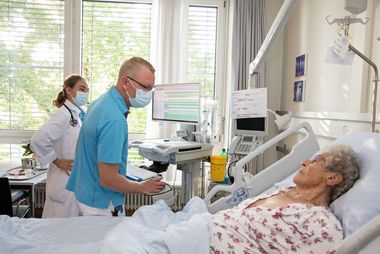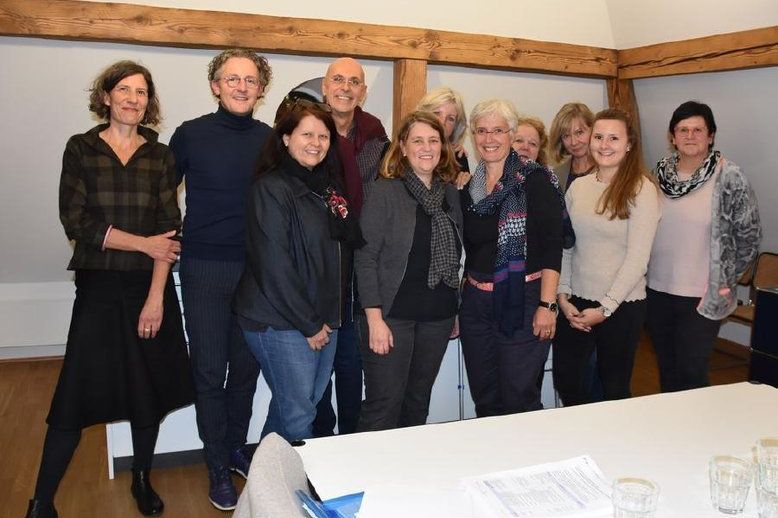Practice

Photo: VFP/Matthias Willi
New roles in care
In this article Sabin Zürcher, Head of Nursing Development, and Kathrin Moser, nursing expert in the Advanced Practice Nurse Geriatrics training program, describe the new professional roles in nursing and how they contribute to the quality of care, patient satisfaction and new forms of collaboration in the interprofessional team.

Advanced Practice Nursing (APN)
- Clinical nursing experts MSc/APN have been working in roles with an advanced scope of practice (advanced scope of practice) for almost 20 years. To this end, they acquire the next level of competence after their bachelor's degree during their studies and in clinical practice.
- Under the umbrella concept of "Advanced Practice Nursing", Master's graduates develop roles and job descriptions at their place of work - and often in consultation with their colleagues in the VFP's academic specialist societies. In doing so, they are guided on the one hand by the nursing needs of their patients and their relatives, by the strategy of their employers and often also by established clinical nursing roles abroad.
- The master's level was not included in the Health Professions Act (GesBG, in force since 1.2.2020) by the federal parliament in fall 2016. The Grand Council of the Canton of Vaud subsequently amended the Public Health Act in 2017 to include the role of "infirmier practicien spécialisé".
- There are currently no binding national Master's competencies. Master's degree programs cannot be federally accredited due to a lack of corresponding standards. Universities therefore have curricular freedom for their Master's degree programs in nursing science. They can - ideally together with service providers and funding bodies - offer specializations and clinical skills as they see fit. They do this - also thanks to networking with universities abroad - and train their Master's students either with a focus on (applied) research or on clinical practice roles. The module qualifications and the Diploma Supplement of the degree programs provide important details for the job descriptions.
- At the same time, this freedom also creates uncertainty for graduates, their employers and, in some cases, for funding bodies and cantons. Who is allowed to do what? Who can do what? How will interprofessional collaboration change? And how will the newly acquired skills be remunerated, especially in outpatient care? These questions must be answered step by step in projects - ideally in alliances between universities, service providers, payers and cantons.
- To regulate the APN role, a nationwide project was launched in 2017, which was supported by seven nursing organizations (associations, universities, nursing practice) and largely financed by the Lindenhof Foundation in Bern. In November 2019, this project led to the founding of the association "APN-CH: Organization of Regulation" (see photo). The founding president is Yvonne Willems Cavalli. You can find more information on the founding of the association hier.

Start with the customer – find out what they want and give it to them.